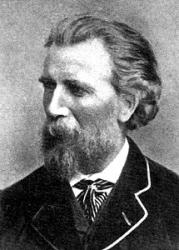Planning worship?
Check out our sister site, ZeteoSearch.org,
for 20+ additional resources related to your search.
- |
User Links
Search Results
[There lives a voice within me]
Appears in 6 hymnals Composer and/or Arranger: S. W. Wilkinson Tune Key: C Major Incipit: 34567 11176 54346 Used With Text: The Voice of Conscience
[There lives a voice within me]
O what a world this might be
Appears in 10 hymnals Used With Tune: [O what a world this might be]
O what a world this might be
The Voice of Conscience
Appears in 12 hymnals First Line: There lives a voice within me Refrain First Line: Up evermore it springeth Used With Tune: [There lives a voice within me]
The Voice of Conscience
There Lives a Voice Within Me
Hymnal: The Carol #85 (1886) Refrain First Line: This world is full of beauty Languages: English Tune Title: [There lives a voice within me]
There Lives a Voice Within Me
The Voice of Conscience
Hymnal: The Sabbath School Hymnal, a collection of songs, services and responses for Jewish Sabbath schools, and homes 4th rev. ed. #112 (1897) First Line: There lives a voice within me Refrain First Line: Up evermore it springeth Tune Title: [There lives a voice within me]
The Voice of Conscience
There lives a voice within me
Hymnal: Sunday School Service Book and Hymnal #136 (1885) Languages: English Tune Title: VOX DEI
There lives a voice within me
S. W. Wilkinson
Composer of "[There lives a voice within me]" in The Sabbath School Hymnal, a collection of songs, services and responses for Jewish Sabbath schools, and homes 4th rev. ed.
S. W. Wilkinson
Gerald Massey

1828 - 1907 Author of "This world is full of beauty" in Jubilate Deo Massey, Gerald, was b. May 29, 1828, in the parish of Tring, Herts, was for some time on the staff of the London Atherneum, and frequently contributed to the Quarterly Review. He has published many volumes of poems. The following have been used as hymns:—
1. Jerusalem the golden! I languish for one gleam. [Heaven.] In the Sunday Magazine, May 1865, p. 7. In his Tale of Eternity, 1870, p. 235, it reads "I weary for."
2. Surrounded by unnumbered foes. [Christian Courage.] In his Tale of Eternity, 1870, p. 272.
3. There lives a voice within me. [God's Voice.] In his Ballad of Babe Christabel, 1854, p. 32, entitled "This world is full of beauty."
Mr. Massey died at South Norwood, London, Oct. 29,1907.
[Rev. James Mearns, M.A.]
--John Julian, Dictionary of Hymnology, New Supplement (1907)
=====================
Born: May 29, 1828, near Tring, Hertfordshire, England.
Died: October 29, 1907, at home, South Norwood Hill, London.
Buried: Southgate Cemetery, London.
Son of an illiterate canal boatman, Massey went to work for a silk manufacturer at age eight. After the factory burned down, Massey began work plaiting straw.
"Having had to earn my own dear bread by the eternal cheapening of flesh and blood thus early, I never knew what childhood meant. I had no childhood. Ever since I can remember, I have had the aching fear of want, throbbing heart and brow. The currents of my life were early poisoned, and few, methinks, would pass unscathed through the scenes and circumstances in which I have lived; none, if they were as curious and precocious as I was. The child comes into the world like a new coin with the stamp of God upon it…the poor man’s child [is] hustled and sweated down in this bag of society to get wealth out of it…so is the image of God worn from heart and brow, and day by day the child recedes devil-ward. I look back now with wonder, not that so few escape, but that any escape at all, to win a nobler growth for their humanity. So blighting are the influences which surround thousands in early life, to which I can bear such bitter testimony."
Despite his hard beginnings, Massey learned to read at a "penny school," with the Bible and Bunyan being his principal resources. Afterward he obtained access to Robinson Crusoe and a few Wesleyan tracts left at his cottage. These constituted his only sources until he went to London at age 15. With access to more reading material, he flourished, absorbing the classics and other influences. In 1849, Massey started a cheap journal, The Spirit of Freedom, written entirely by workingmen. He was fired from five different jobs for publishing it, but he was committed to the cause of the laborer. He eventually went on to publish poetry, as well. He is particularly known for his 6-volume trilogy on the origin of religions. His works include:
A Book of the Beginnings
The Natural Genesis
Ancient Egypt
Sources:
Julian, p. 1669
http://www.hymntime.com/tch/bio/m/a/s/massey_g.htm
Gerald Massey


 My Starred Hymns
My Starred Hymns


